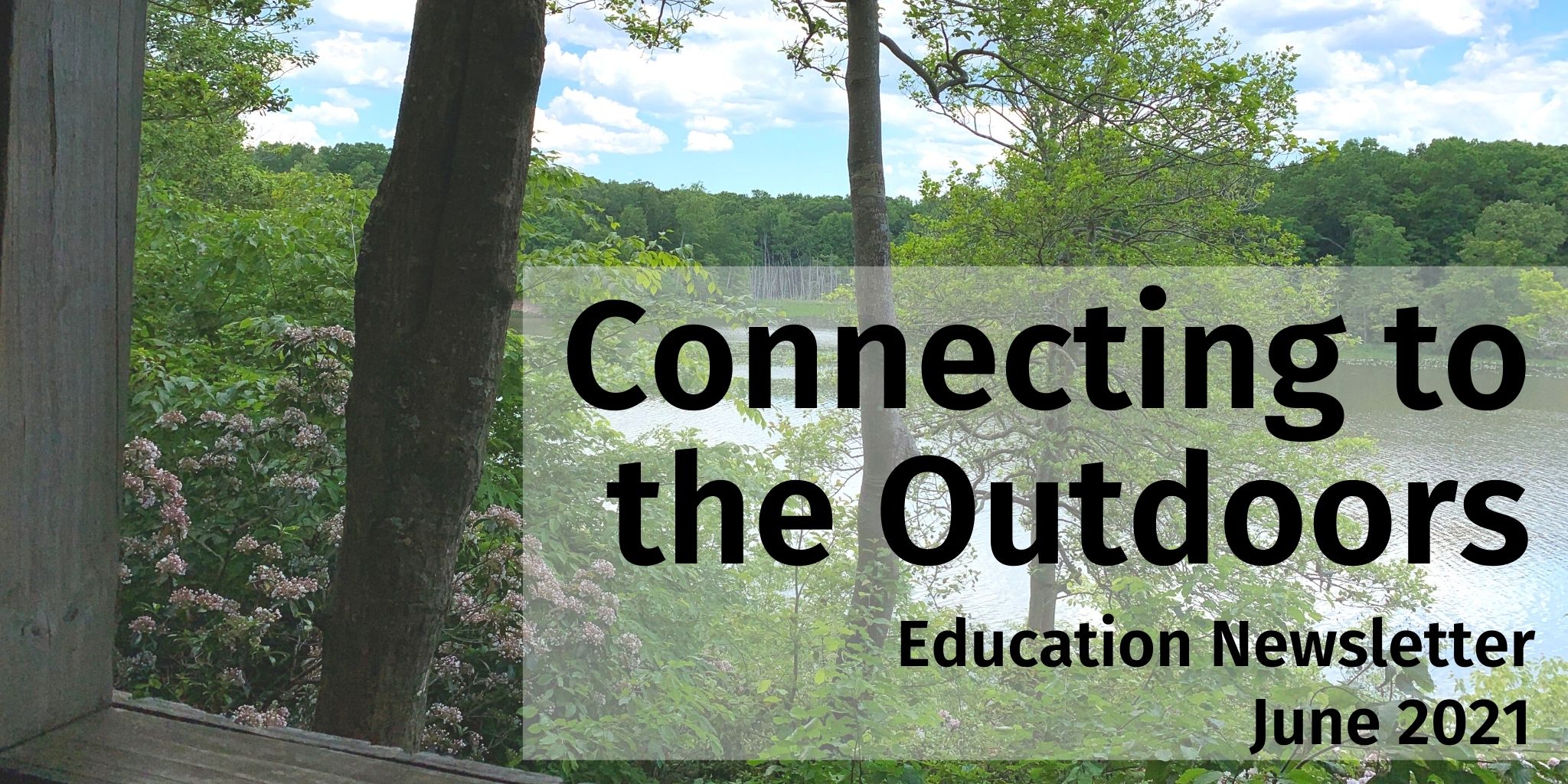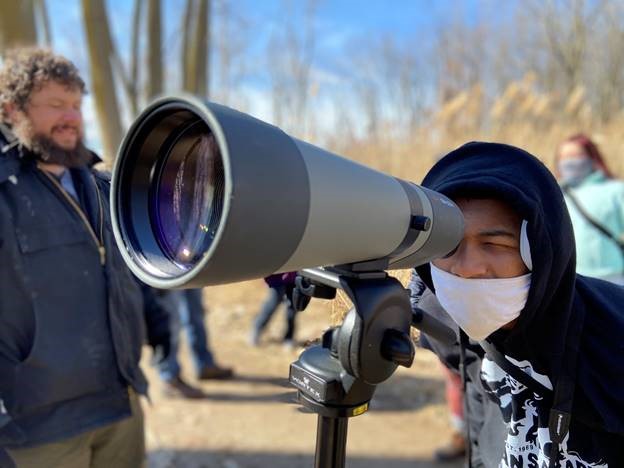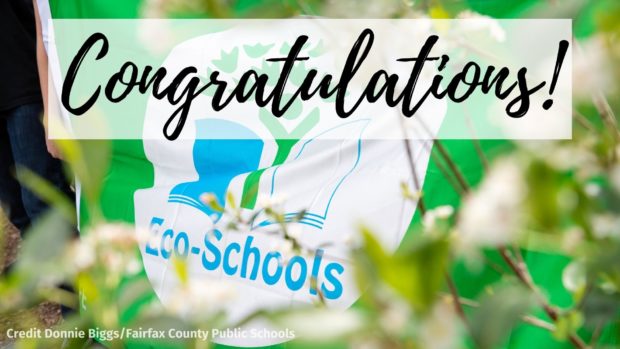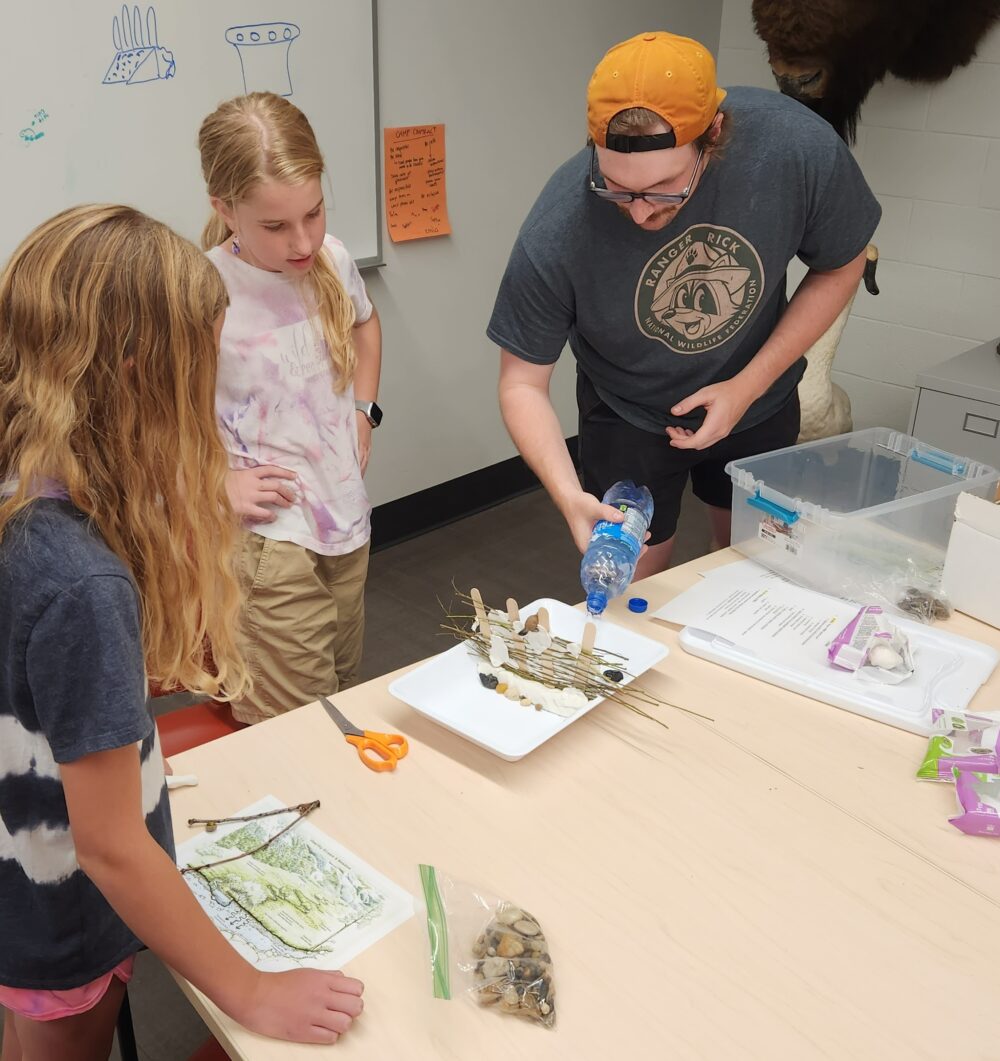We have much more to do and your continued support is needed now more than ever.
Education Newsletter June 2021

Summer officially begins later this month and we know many of our readers are ready for a break from one of the most stressful school years in recent times. We hope everyone has the opportunity to spend time with family, relax with a good book, and safely get outside for fresh air, nature, and a much-needed break from the computer screen!
As we recognize June as Great Outdoors Month, we also realize that access to safe nature experiences is not readily available for many youth and families. If you haven’t had a chance yet, take some time to listen to the series of roundtable discussions that have brought together experts, activists, and policy makers as part of the Creating Safe Spaces Initiative launched by the National Wildlife Federation. Learn more about the key issues and recommendations related to barriers and challenges faced by Black, Indigenous, people of color and people with varying abilities in outdoor spaces.
June also brings opportunities to connect with the Sustainable Development Goals through several global initiatives.
- Celebrate World Environment Day on June 5th and join #GenerationRestoration.
- Tune in to World Oceans Day programming on June 8th, with a 2021 theme of The Ocean: Life & Livelihoods.
- Create a wish list for the classroom library using the list of recommended books (ages 6-12) from the SDG Book Club.
Take Learning Outside
Temperatures may be rising but we don’t want to miss an opportunity to share this great story—Special Sauce: The Detroit Sugarbush Project. It’s all part of the critical work happening through the Detroit Leadership and Environmental Education Program (D-LEEP), led by Antonio Cosme.

The blog details a unique, outdoor experience had by youth in Detroit’s Rouge Park. The kids learned skills like how to split logs and tap and drill sugar maple trees. They also participated in ceremonial sugarbush activities with local Anishinaabe sugarmakers from the Keweenaw Bay Indian Community.
“A primary point of this project is to engage young Detroiters in those late winter months in an activity that not only gets them physically active but also drives home important connections between the Indigenous and African-American communities.”
Antonio Cosme
Read more on the blog—Special Sauce: The Detroit Sugarbush Project.
Hear more from Antonio in this latest podcast Making Wild Spaces More Inclusive.
Let’s Celebrate
The end of the school year brings with it opportunities to congratulate those schools who have achieved a Green Flag Award, earning Eco-Schools USA highest honor during the last year.

Cape May City Elementary
Center for Young Children (4th Green Flag)
Clark Fork School (2nd Green Flag)
Eastside Memorial Early College High School (3rd Green Flag)
George L. Catrambone Elementary School (2nd Green Flag)
Millbrook Environmental Connections Magnet Elementary
Montclair Kimberley Academy (2nd Green Flag)
Queen Of Peace School
In addition, several participating Eco-Schools were recently honored as 2021 U.S. Department of Education Green Ribbon School winners. Learn how the Eco-Schools USA’s Seven Step Framework and pathways support the three pillars of the Green Ribbon Schools program.
Gerald Otte-Blair Middle School
PS 90 The Magnet School for Environmental Studies and Community Wellness
D.C. Virgo Preparatory Academy
Hance Elementary School
Clement Avenue School
Discovery Charter School
Learn About Pollinators
Here at the National Wildlife Federation, we talk a lot about pollinators like butterflies and bees. But there are many other essential pollinators that students may not know about. The Other Pollinators story from the June Ranger Rick® magazine is a fun way to learn more about pollinators from around the world, including the tui from New Zealand! Don’t forget to check out the free classroom resources that accompany each issue of the magazine.
Here are a few other ways to raise awareness about pollinators:
- Celebrate National Pollinator Week June 21 – 27th. Search for pollinator-related activities and events here.
- Encourage students to take action for pollinators from home this summer. In case you missed it, last month, we shared the Growing a Pollinator Garden brochure, available to download on the Eco-Schools USA website.
Green Opportunities and Virtual Resources
National Wildlife Federation
- Start planning now for fall! Learn how to create a vibrant, outdoor learning environment at school by exploring the updated Schoolyard Habitats® Planning Guide.
- Registered Eco-Schools—apply for a recognition badge for your school dashboard upon meeting the criteria upon completion of any Eco-Schools USA at Home modules.
- Search for simple, outdoor activities from NWF’s Green Hour Program.
- Download the free Ranger Rick Family Guides, along with wildlife and pollinator craft activities.
Other Resources and Opportunities
- Cornell Lab of Orinthology: Get Outside for Summer free webinars June 8th or June 10th
- Free 2-Day Virtual Teacher Workshop: The Future of Forests (for MS/HS Science Teachers); workshops 6/22 & 6/23 or 7/27 & 7/28.
- Learn more about the 9-week Climate Change Essentials for All Educators program happening this summer.
- Explore curated climate change PreK-12 lesson plans and resources
Professional Development





















